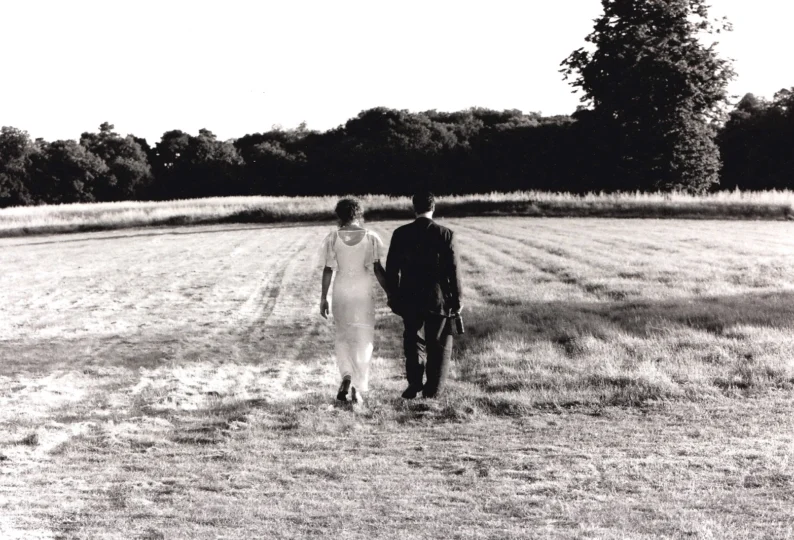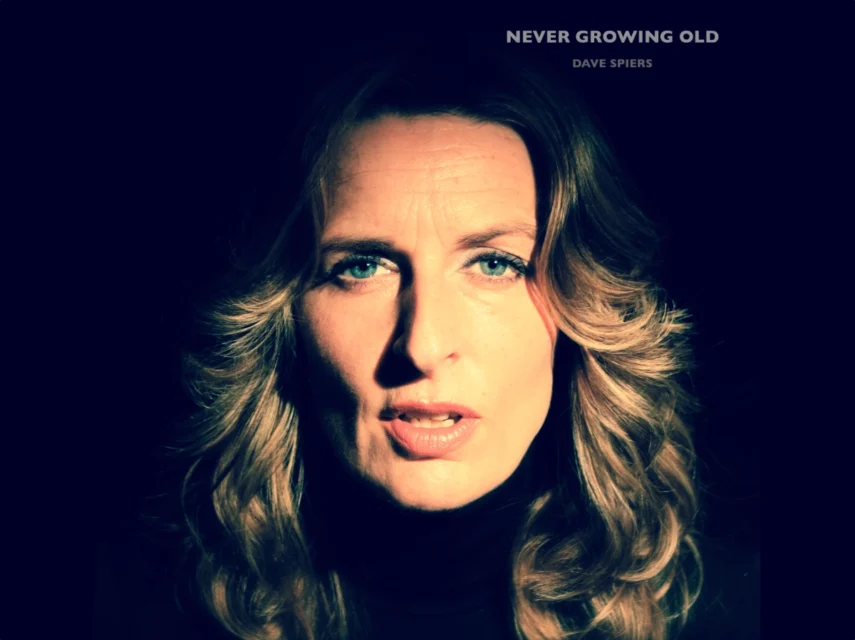September 2, 2025
by GForce Software
Those with eagle eyes may have noticed that GForce co-founder Dave Spiers has been absent for a while. In February 2023, his wife Louise passed away suddenly, and Dave stepped back from work to grieve and support his family. During that time, he slowly found his way back to music by writing an album dedicated to Louise. With its release on Bandcamp today, Dave sat down with us to share the story behind it.
Thanks for taking the time to talk, Dave. Can we start with what happened?
Of course. There’s a message I want to get across to everyone: get your partner’s cholesterol checked—especially women. For some reason, in the UK they’re often overlooked.
Louise was absurdly fit and active, always telling me to move more while I sat at a computer for 16 hours a day. I knew she was right, but as any creative knows, you put in the hours when you’re building something—especially when Chris and I started the company.
She died of a heart attack caused by high cholesterol. Because her blood pressure and BMI were perfect, she was considered “low risk” and hadn’t been checked for years. It was devastating. When people came to visit afterwards, they just looked at me in disbelief: “What? Louise?”
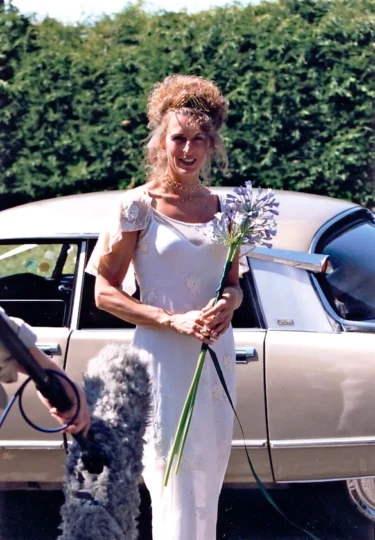
You took time away from music. Was that difficult?
Honestly, I thought I was done with music. I dismantled my home studio and redecorated, just to keep my head busy. But I knew I was in shock and needed to be present for our daughter, Louise’s mum, my parents, and close friends.
After a month or so, I could almost hear Louise’s voice: “Don’t quit. If you do, what were all the sacrifices for?” She’d supported me from the very beginning of GForce, so I knew I had to find my way back somehow. So I set up a simple rig in her art studio—the same room where she died—and started again from scratch. By scratch, I mean just me and a piano.
How was that experience?
Brutal. Nothing came for weeks. Eventually something did though, and I sent it to friends and family asking, “Is this any good?”I had no perspective and needed them to be honest. Thankfully, they said “yes”, and that became the first track.
From there, the album grew. Every track is in the order it was written. I wanted to keep that authenticity and map the journey. I even have videos of the process and that’s fascinating to see the change in me – the weight loss – me going from hunched to a little more straight-backed, etc.
After my last album, which leaned heavily into ’70s influences, I wanted this one to have more of an ’80s feel—that’s when Louise and I first met, even though we didn’t get together until the early ’90s.
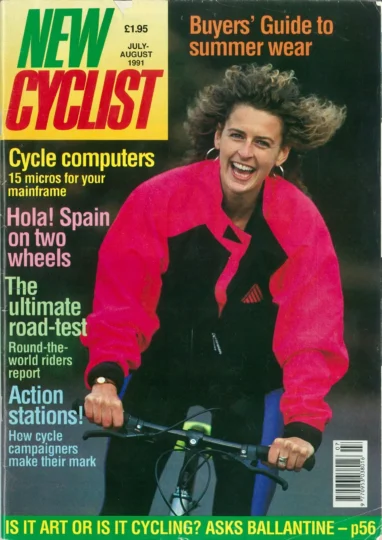
How did the album name, Never Growing Old, come to you?
Initially I was going to call it Songs From The Grief Chair as a nod to Songs From The Big Chair by Tears For Fears. We loved that and the Sowing The Seeds album. However, one of Louise’s closest friends came to visit in the immediate aftermath and was shocked and angry at what had happened. At one point she said “She’ll never grow old… and always be beautiful.”
My previous album was called Never Growing Up so the idea of Never Growing Old seemed more fitting.
The second track, Grieving, is a full synth arrangement. How did that come about?
The title says it all. Musically, both Louise and I were huge Blue Nile fans, so that felt like a good 80s starting point. It started with the OB-E patch Beauty Bells in C, layered with an 808 drum pattern.
Singing was tough—I cried every time I tried—but eventually it came together. OB-E is all over this track, including the Downtown Lights patch I originally made as a Blue Nile tribute. At some point, I asked Dominic Glover to add trumpet. He’s incredible—he’s played with everyone from Incognito to Groove Armada. What he sent gave me goosebumps.
Happy With It All is quite upbeat, with a Prefab Sprout flavour. What’s the story there?
Steve McQueen (or Two Wheels Good in the US) is one of my all-time favourite 80s albums. The bones of this track had been in my head for years, but I’d never managed to get it right. After moving into Louise’s art studio, I gave it another try with new lyrics, and suddenly it just came together—almost like I was channelling her.
Instrumentation-wise: drums came from Stylus RMX, piano from Keyscape, bass from Trilian, OB-E for chords, M-Tron for vocal samples, and Logic’s Studio Brass for trumpets.
Lyrically, it’s about perspective. We shared 32 incredible years together, and while it’s painful moving forward, I have to celebrate that time.
Falling Down takes a darker turn lyrically, but it has a funky groove. That’s an interesting juxtaposition.
Yes. I didn’t want everything to be morose. Still, the permanence of what had happened was hitting hard, so that’s where the lyrics came from. Most of the writing was stream-of-consciousness—whatever was going through my head at the time.
Instrumentation was mostly GForce: Minimonsta 2 for bass and lead, OB-E for chords, and even a synth we never released but I still love using.
Skin of My F**ing Teeth is a striking title. What inspired it?
Louise’s mum is 96 and still sharp as a tack. I was hosting a gathering for her, my mum, and some friends, and afterwards someone sent me a message saying it had been a day full of love and that I’d done a good job despite me never hosting such a gathering before.
Straight after, I went into the studio and wrote: “You should be here, you would have seen me, you would be proud of the way that I’m coping… by the skin of my f**ing teeth.”*
There’s a lot of Omnisphere, Trilian, OB-E, Minimonsta, and Oddity on that one. The drum groove started as a homage to Prince but evolved into something else. Recording the vocals was tough, but it came together.
Weak feels deliberately simple.
It was. At the time, simplicity was all I could manage. It’s basically a three-chord wonder. Looking back, I might have added more changes, but in that moment, complexity was beyond me.
I do love it, though. Everything stemmed from an Oberheim OBX-8, which Tom Oberheim kindly signed for me. From there, I added OB-E, Minimonsta for bass, and Stylus for drums. Recently I’ve been working on an instrumental version with a guitar solo by the supremely talented Milton Macdonald from ELO, which I’ll release on Bandcamp as a bonus track at some point.
One More Time has a nostalgic feel.
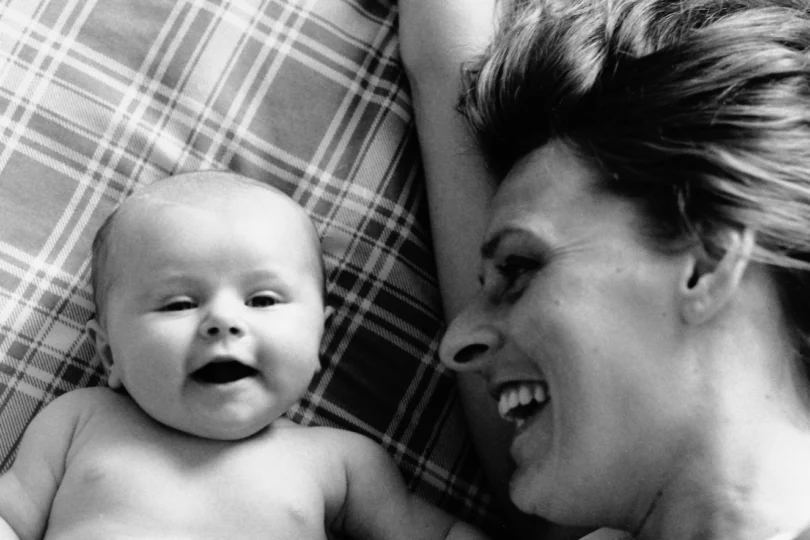
Yes, the chords came from an ImpOSCar 3 patch I didn’t make myself. The song was inspired by Louise telling me how, as a child, she’d dance around the room on her dad’s feet. I did the same with our daughter, Freya, and so did many of my friends. That feeling of being “safe and free” stuck with me, so I wanted to capture it.
I deliberately kept the track ungrounded, with no real bass, just impOSCar 3, Rhodes and OB-E filling out the sound. The drums combine Stylus with our GForce/Oberheim DMX. The chorus drum part was influenced by Tears for Fears’ Shout.
Better World has a strong 80s club influence.
That’s a nod to Louise’s clubbing days in that era. We loved Galliano, Soul II Soul and Caron Wheeler. They all borrowed a famous drum loop, so I did too, then layered it with a break from Young Disciples’ Road to Freedom.
Lyrically, it’s about when Louise and I first got together. She’d come out of a tough relationship and worked incredibly hard to clear debts she’d been left with. Once she was free of that, amazingly, she took a chance on me. She went through so much, but she always danced like an angel when that kind of groove came on and I’d watch in awe.
Into the Light feels like a turning point.
That one came out of a conversation with my friend Karl Hyde. He mentioned the idea of moving into the light, and it resonated. At first Karl suggested I strip the drums, but I kept them—the ’80s vibe was important to me. OB-E’s Lyle Mays patch, plus a real Minimoog and Trilian bass, gave it the feel I wanted. For me, it’s an attempt at a “letting go” song. Strings came from String Murmurations and Omnisphere.
The First Touch has a personal story behind it.
Yes. The synth vamp is from my old ’80s band, which won a competition. Louise was in the audience with her then-boyfriend. When the results were announced, she instinctively kissed me. It was innocent and years before we got together, but that was technically our first kiss.
Getting Tears for Fears’ guitarist Neil Taylor to play on this track was special, since we were huge fans. Friends who heard it said it looked and sounded like I was having fun again—and they were right. Louise was never one to dwell on sadness, so I wanted this to feel celebratory.
Quantum Entanglement is one of the few instrumentals. Why that title?
A good friend explained the science of quantum entanglement to me—how two particles remain connected across any distance. That’s how I feel about Louise: we’ll always be linked.
Ninety-nine percent of the track was done with GForce’s Halogen, with some real Minimoog and Crow Tree’s String Murmuration layered in.
Lonely is darker, with a late ’80s acid feel.
Yes. It’s loaded with GForce instruments—Halogen, DMX, OB-E, OB-1, Oddity, and Bass Station, plus Hex Drum for Simmons-style percussion.
The song says it all: the realisation that this is permanent, that your soulmate isn’t there to guide you. The loneliness bites hard, but to stop pushing forward would feel like betraying all the great years we had.
Wasn’t Supposed To Be must have been hard to record.
It was. In fact, recording vocals across the whole album was brutal. Some days I couldn’t get through a line without breaking down. Luckily, this track has very few words.
What amazed me was how much emotion gets poured into a song, but after listening back hundreds of times, you become numb. Sharing tracks on Facebook with friends helped me let go. It was incredibly cathartic. This album isn’t the most complex thing I’ve ever done, but it’s raw and real—a fight to reconnect with music and a tribute to Louise’s magnificence.
The album closes with Thank You for Everything.
I didn’t want to end on a downbeat note. Louise had such grit and always made me smile. We had 32 amazing years together, and she gave me more than I ever could have imagined. As my mother-in-law reminded me when I was at my lowest: “It’s important to remember the joy.”
So yes, the final track is simple: just synths, a little bit of guitar in a major key and a message of gratitude.
Any final thoughts?
Just a HUGE thank you to everyone who supported me and my daughter throughout. I can’t believe how amazingly people were, and continue to be. Honestly, I couldn’t have wished for a better support network and I’ll be eternally grateful to everyone. Hopefully I’ve not missed any names off the credits but I do need to send a mega thank you to Chris, Jerome and the entire GForce team for everything they’ve done in my absence. I’m blessed to work alongside these amazing individuals.
Oh and one last thing: please, get your partner’s cholesterol checked.
Never Growing Old is available for free from: https://davespiers.bandcamp.com/album/never-growing-old
If you like it, please consider donating to: https://www.heartuk.org.uk
